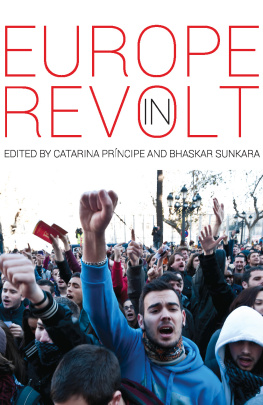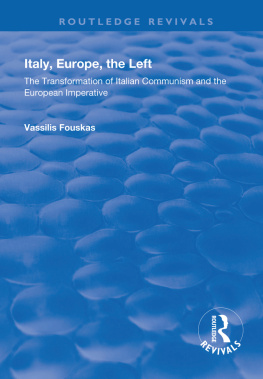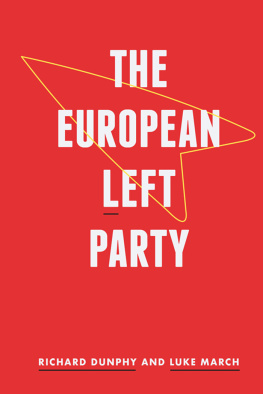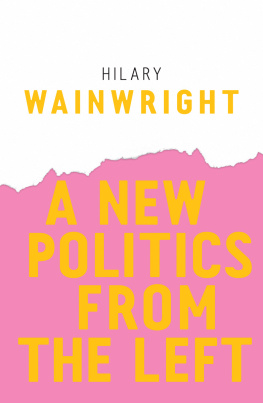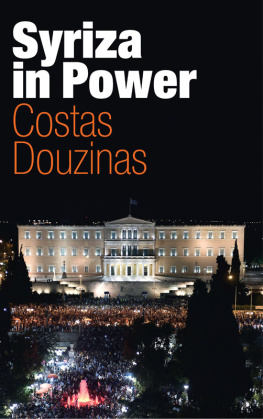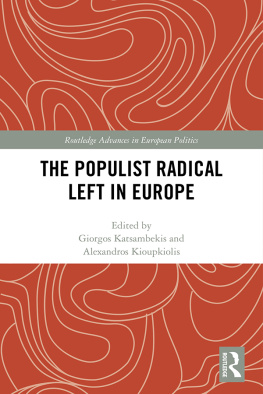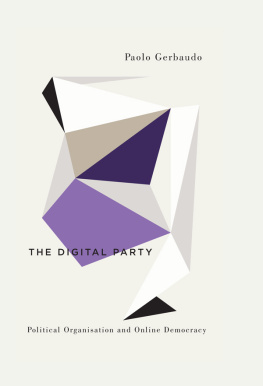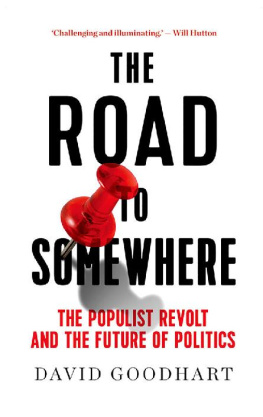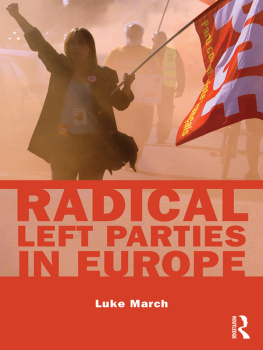Contents
Catarina Prncipe
Panagiotis Sotiris
Stathis Kouvelakis
Leandros Fischer & Daphnos Economou
Petter Nilsson & David Zachariah
Vidar Thorsteinsson
David Broder
Clment Petitjean
Alex de Jong
Mark Bergfeld
Daniel Finn
Hilary Wainwright
Catarina Prncipe
Luke Stobart
Introduction:
Europe in Revolt
Catarina Prncipe
If Syrizas electoral success at the beginning of 2015 seemed to vindicate the strategy of the new left parties of Europe, its ultimate fall to the eurozone provided ample ammunition to these parties critics. Many such critics dismissed the possibility of a political alternative to austerity altogether, asking us instead to focus on developing extra
parliamentary movements.
This criticism cuts beyond the new European left and targets the very objective behind building mass workers parties since the nineteenth century to organize and transform class consciousness through struggle. But despite defeats and detours, the creation of political alternative remains the only viable path to overcoming not just austerity but capitalism itself.
The first experience of building mass workers parties ended with the outbreak of World War I and the decision of majorities in both the German and French social-democratic parties the leading lights of the European movement to betray the cause of socialist internationalism and back the war of their respective governments.
The task of uniting an opposition fell to the Bolsheviks. Their efforts laid the foundation for a new international that would briefly cohere in the wake of the Russian Revolution and for the class militancy that followed the wars end. They called themselves Communists and defined their movement in opposition to the reformist forces that had betrayed the legacy of social democracy.
Still, only the German Communists already devastated by the death of their greatest leaders and expelled from the Social Democratic Party ( spd ) were able to make a sustained challenge for power, before the revolutionary wave receded, social democracy found its footing, and the rise of Stalinism fatally reshaped the young Communist parties.
Those who attempted to chart an independent revolutionary course were purged and isolated from both the official Communist and social-democratic organs that would dominate the workers movement through the Second World War. A number of changes had to take place before revolutionaries would again have a mass audience: revelations of Stalins crimes, the Soviet suppression of the Hungarian and Czech uprisings, and the return of militant class struggles in the 1960s and 70s.
The latter exposed the conservatism of most Western European Communist parties and created space for new formations to their left, such as the British Socialist Workers Party and the French Revolutionary Communist League. But with the onset of the neoliberal offensive in the late 1970s, these parties were weakened.
Traditional social-democratic parties were also irrevocably harmed. Social democracys reform-minded left wing experienced defeat and retreat, while its right wing happily took up managing neoliberalism. As these former workers parties began implementing austerity, dissident social democrats, Communists, and others built new parties that worked with social movements and engaged in debates about the best way to confront neoliberalism. Over the past decade, formations like Bloco de Esquerda, Die Linke, and Syriza have filled the hole left by social democracy.
Unfortunately, some revolutionaries have made what from the 1930s to the 1980s was a necessity building small revolutionary groups because of the difficulty or impossibility of operating independently within mass reformist parties or official Communist ones into a virtue, by misinterpreting the experience of social democracy in general and the Bolsheviks in particular.
The Bolsheviks in Tsarist Russia were attempting to build a mass party in conditions of illegality, not a professional revolutionary one. It was that context and the split with the Mensheviks not some theoretical purity that caused the reformist tendencies that dominated the German party machinery to be marginalized in Russia.
The most relevant lesson from prewar social democracy for the class struggle today is that we must first build parties that will become dominant in the workers movement through the fight for reforms. It is only through that collective experience of winning tangible victories and testing the limits of reformism that a majority will be won to revolutionary politics.
While its true that such formations would recreate many of the same contradictions present in prewar social democracy, this does not necessarily doom them to the same result. And revolutionaries who cede to reformists the task of creating and shaping political formations with the power to appeal to the working-class majority and engage them in political struggle undermine not just those but any separate revolutionary projects as well.
With the rise of neoliberalism and the attendant shift of traditional social-democratic parties from mass workers parties into parties that administer austerity, the political center of gravity has moved to the right. This means that the struggles in Europe for a functional welfare state and labor rights have been orphaned for several decades.
The rightward drift, coupled with the fall of the Soviet Union and the antiwar and alter-globalization movements, opened a political space that needed to be occupied by a new left. New parties would have to be founded on the rejection of Stalinism and a new approach to social movements, with the aim of winning over the social base of liberalized social democracy. They would have to adopt the central programmatic points of traditional social-democratic parties protecting the welfare state and labor rights while adding a broader layer of feminist and environmental demands. As politics in Europe and beyond swerved to the right, it was up to radicals to organize around such policies.
The new European left has gone about constructing mass working-class parties with two things in mind. The first is that the party is an instrument of social intervention interacting with social movements, the labor movement, and grassroots organizing efforts that should simultaneously build an autonomous political program and fight for state power.
The second is that the new lefts base of support is both the traditional supporters of mass workers parties and the millions who have become discontented with the political system as a whole.
These new currents were established on the understanding that there was no need to weigh efforts to win people over on left-reformist demands against the importance of developing support for more radical ideas and currents. On the contrary, this kind of broad engagement was the only way to keep the far left relevant to ordinary people.
The ideologically diffuse composition of these parties allows for their transformation in progressive directions, as well as offering radicals a wide public platform. What has kept revolutionary ideas alive has been precisely their engagement with left-reformist projects.
New left parties now proliferate, but it is still unclear for many on the European left where we go from here. We offer some strategic ideas to contribute to that debate.
First, broad left parties didnt emerge out of thin air or because of the good will of small radical or revolutionary groups: they were born of broader political mobilizations that existing parties were unable to tap into. One of the central objectives of the new parties has been to undermine the neoliberalized social-democratic parties by siphoning off their basis of support. This is only possible when an autonomous political project refuses to be a crutch for the traditional social-democratic parties but at the same time makes its presence felt, fights for reforms, tries to win social majorities, and disputes state power. Each important rupture within the center-left parties has happened because a formation was applying pressure from the left as with Oskar Lafontaine and other left-wing German spd members involvement in the founding of the socialist party Die Linke.

